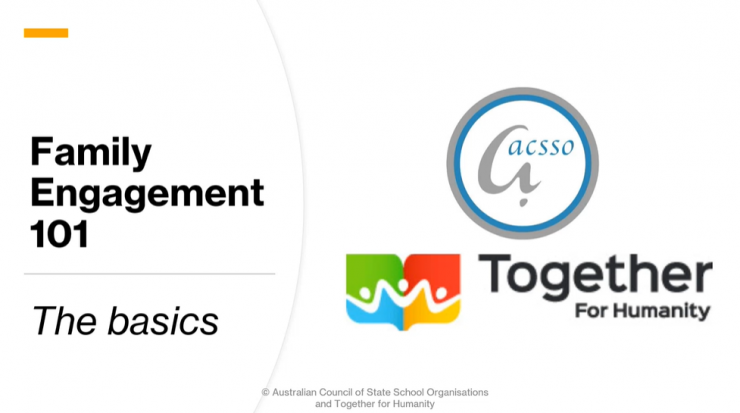
Resources:
Family Engagement 101
Family engagement refers to the collaboration between families and educational institutions to support and improve the learning, development, and health of children. It goes beyond parental involvement in school activities; it is a continuous interaction that may include participation in school decision-making processes and supporting learning at home. Effective family engagement builds a partnership where educational professionals and families work together to create the best possible learning environment for students.
Why is Family Engagement Key to Student Learning and Well-being?
Engaging families in the educational process is crucial because it:
- Boosts academic performance: Students with engaged families are more likely to achieve higher grades and test scores, enrol in higher-level programs, and have regular attendance.
- Enhances social skills: Family engagement fosters higher self-esteem, better social skills, and behaviour, thereby reducing the incidences of disciplinary actions.
- Improves well-being: When families are involved, students report higher motivation, better school attendance, and a decrease in depression and anxiety.
Identifying and Overcoming Barriers to Engagement
Several barriers can hinder effective family engagement:
- Communication gaps: Language barriers, lack of understanding about school processes, or inconsistent communication methods can disconnect families from school activities.
- Cultural differences: Differences in cultural expectations about education and parental roles can cause misunderstandings between schools and families.
- Time and resources: Families often face practical constraints such as time, work schedules, and lack of transportation.
To overcome these barriers, schools can:
- Implement flexible communication and engagement strategies that accommodate diverse family schedules and preferences.
- Provide translation services and culturally relevant communication to bridge gaps in understanding.
- Create welcoming school environments that respect and affirm the value of different cultures and backgrounds.
Ensuring Inclusion and Belonging for Culturally Diverse Families
Inclusion in family engagement means ensuring that all family types, regardless of cultural, social, or economic background, feel they belong and are actively involved in their children's education. Strategies include:
- Cultural competency training for staff: Equip school staff with the skills to understand, communicate with, and effectively interact with students and families from diverse cultures.
- Family liaisons or cultural ambassadors: These roles can help bridge cultural divides and build trust between schools and community groups.
- Inclusive policies and practices: Develop school policies that recognize and celebrate cultural diversity, including multilingual education programs and multicultural events.
Family engagement is a dynamic and essential component of student success and well-being. By understanding and addressing the barriers to engagement and fostering an environment of inclusion and belonging, We can ensure that all students have the support they need to thrive academically and socially.
president@acsso.org.au
ceo@acsso.org.au
PO BOX 8221,
Werrington County,
NSW, Australia, 2747
0497 042 026 (Monday, Tuesday & Thursday)
0418 470 604 (Monday through to Friday)